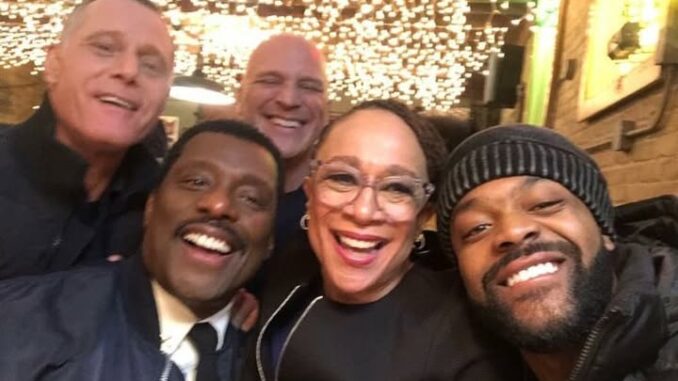
Before Jason Beghe became known as the gravel-voiced, no-nonsense Sergeant Hank Voight on Chicago P.D., he had an entirely different image—one that involved far fewer clothes and a lot more smoldering. In the 1980s, long before he was chasing down criminals in Chicago’s grittiest neighborhoods, Beghe was turning heads as a model, appearing shirtless in ads that leaned heavily into the era’s obsession with brooding masculinity and bronzed skin.
One of the more fascinating aspects of Jason Beghe’s early years in the public eye is his connection to some major Hollywood names. He was close friends with David Duchovny (The X-Files)—in fact, it was Beghe who encouraged Duchovny to try acting. At the time, both were navigating the uncertain waters of Hollywood, bouncing between auditions and odd gigs. Beghe’s modeling career gave him exposure and helped fund acting classes, but it never defined him. “Modeling was just something I did to pay the bills,” he explained. “But I always knew acting was what I really wanted to do. I just didn’t know how long it would take to get there.”

Jason Beghe’s journey has been anything but linear. In the ’80s, he was a model with a killer jawline and a future full of question marks. In the ’90s and early 2000s, he was a working actor trying to find roles that matched his passion. And now, in the 2020s, he’s a household name for Chicago P.D. fans and a respected figure in the television industry. His voice, once light and unremarkable, now carries the weight of time and experience—literally. A car accident in the late ’90s damaged his vocal cords, leaving him with the gravelly, commanding tone that defines Voight. Ironically, what could have been a career-ending injury became a signature trait.
Beghe doesn’t shy away from that past. “I’m not ashamed of any part of my story,” he said. “If anything, those old photos remind me of how far I’ve come—not just in my career, but as a person. I’ve lived a few lives already.” He encourages young actors to embrace the unpredictability of their journeys. “You don’t know what’s going to define you. Sometimes it’s a gritty role on a hit TV show. Sometimes it’s a goofy old ad in a magazine. Just roll with it.”
When asked if he’d ever consider returning to modeling in some form—even as a joke—Beghe laughed and said, “Only if Voight needs to go undercover as a Chippendale’s dancer. But I think we all know that’s not gonna happen.”
Today, Beghe focuses not just on his acting but also on mentorship. He’s been vocal about the importance of staying grounded, avoiding fame traps, and making choices based on character rather than ego. For him, every part of the past—whether it’s a high-fashion photo shoot or a brutal Chicago P.D. interrogation scene—adds up to a fuller picture. And that picture? It’s one of resilience, reinvention, and surprising tenderness beneath a tough exterior. As he looked again at one of his old ads—bare chest, confident smirk, hair tousled just so—Beghe gave a final shrug. “That guy was just starting out. I like where he ended up.”
